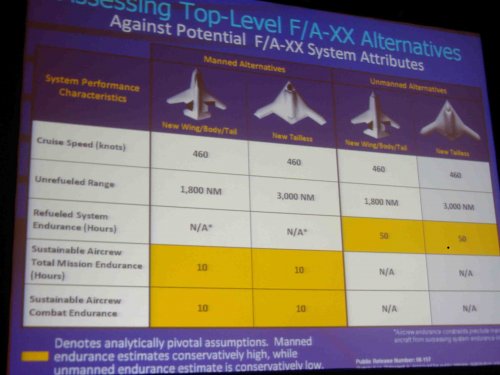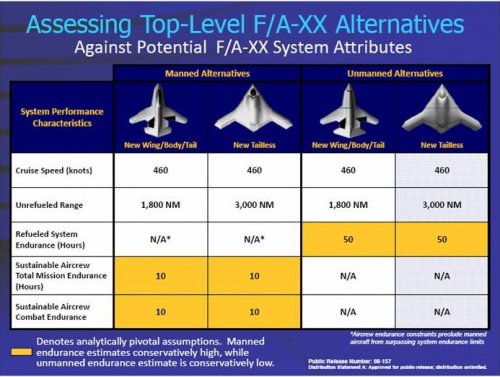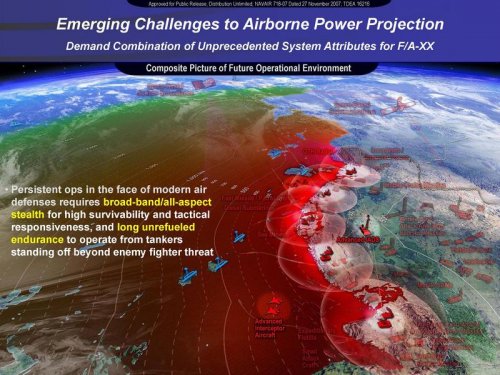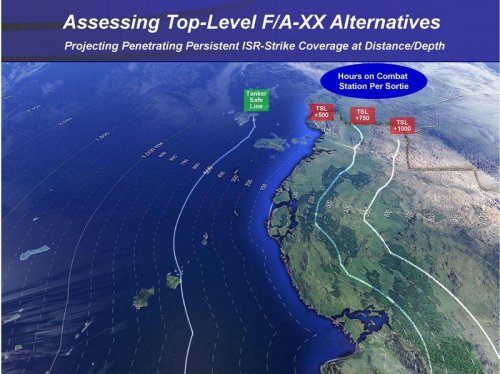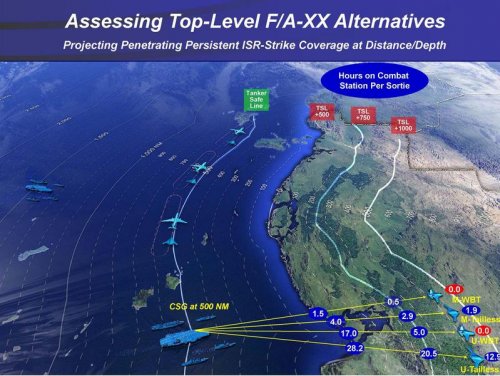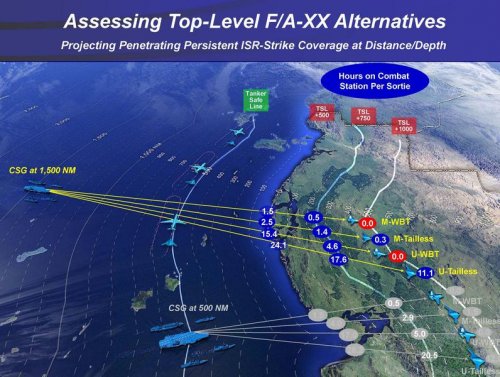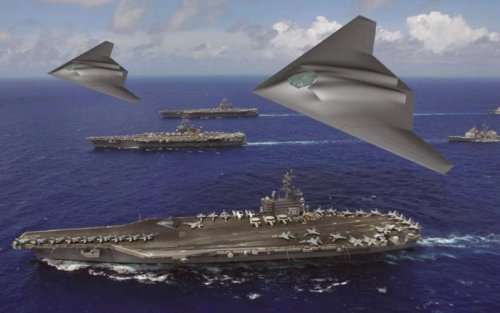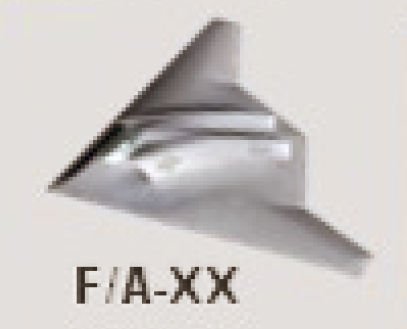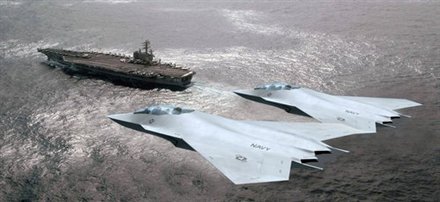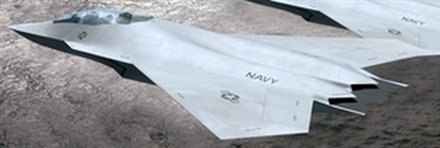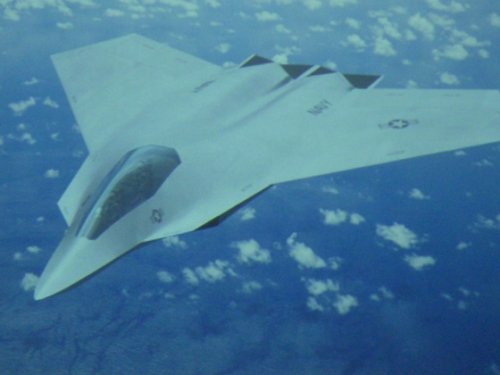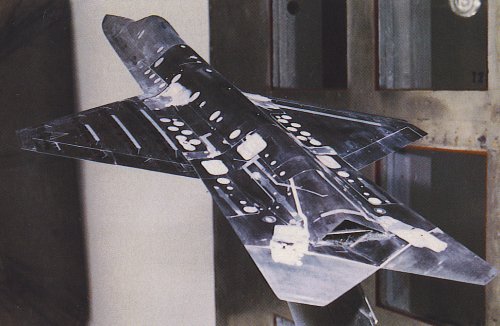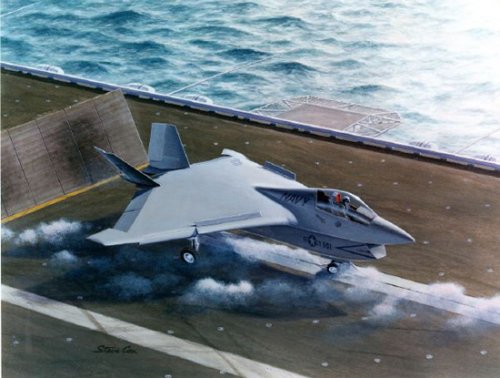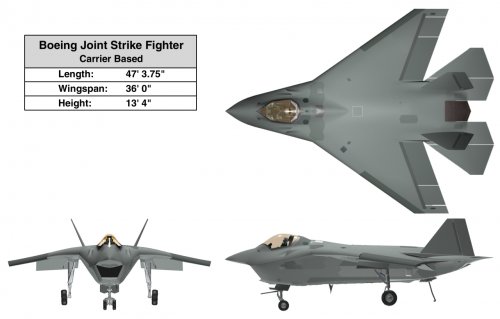Matej
Multiuniversal creator
Boeing is touting an even newer version of its F/A-18E/F Super Hornet that, paired with an advanced sixth-generation fighter in the works at the company, would give customers what Boeing deems a better package of capabilities than Lockheed Martin's combination of the F-22 Raptor and F-35 Joint Strike Fighter.
The idea is that customers could buy 4.5 generation Super Hornets (perhaps 4.75 generation with the planned extra forward stealth and extra range of Block 3 aircraft) and then switch to a new, sixth generation faster than if they bought the fifth generation Joint Strike Fighter. To be available circa 2024, the sixth generation aircraft would feature a combat radius of more than 1,000 miles and stealth against a much wider spectrum of radars.
"The [Navy] C-version of the F-35 doesn't buy you a lot that the Super Hornet doesn't provide," says Bob Gower, Boeing's vice president for F/A-18 and EA-18G programs. "Our strategy is to create a compelling reason for the services to go to the next [sixth] generation platform. How do you bridge F/A-18E/F to get us there? We want to convince customers to stay with [Super Hornet] a few years longer -- by adding advanced capabilities and lowering price -- so that they can get to the sixth generation faster. If you go to JSF first, it's going to be a long time."
Another part of Boeing's argument is that the "Navy is comfortable with the Super Hornet against the highest [enemy] threat through 2024, with the [improved] capabilities we have in the flight plan," Gower says. "The ability to counter the threat gets you to about the point that [Boeing's] sixth generation is available."
It's part of Boeing's counterattack on Lockheed Martin's claim that the decreasing price of the F-22, which is now at $140 million each, will make it so attractive that Australia may reconsider its buy -- already being paid for -- of 24 two-seat F/A-18F Super Hornets. Until Australia's recent change in government, a number of U.S. officials said the government was considering a second lot of 24 Super Hornets and a six-plane squadron of EA-18G Growlers.
Boeing makes the argument that a sliding in-service date for the JSF is worrying both the Australians and the U.S. military.
"The U.S. Air Force and Navy are now talking a lot more about where they need to go with sixth generation to get beyond JSF," Gower says. "It could be unmanned, but I think you will see a combination of missions -- some manned, some unmanned."
For Boeing, the real discriminators are going to be extended range (1,000-1,500 miles), a small radar signature against low-frequency radars, expanded awareness through connections with the network, and the ability to carry a number of bombs internally.
http://www.aviationweek.com/aw/gene...ter With Block 3 Super Hornet&channel=defense
Seems that probably we will see very interesting competitors fight.
Last edited by a moderator:

